Building Resilience – much harder than constructing something
Posted by Michael Milston on Oct 09, 2016
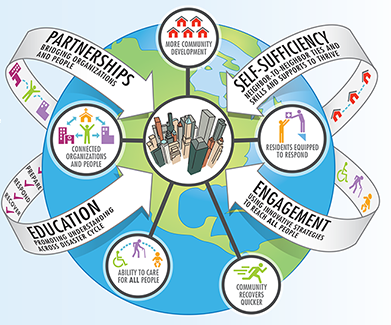 You know, the Rotary areas of focus are very well thought out! Last month we considered the role of education and literacy in preparing and enabling people for life; and now the role of economic and community development. It is no great revelation, but it worth considering that this development is about building resilience - in people, in families, in communities and in societies.
You know, the Rotary areas of focus are very well thought out! Last month we considered the role of education and literacy in preparing and enabling people for life; and now the role of economic and community development. It is no great revelation, but it worth considering that this development is about building resilience - in people, in families, in communities and in societies.Poverty
During our Club visits I presented a quote from Nelson Mandella about poverty:
"Overcoming poverty is not a task of charity; it is an act of justice. Like slavery and apartheid, poverty is not natural. It is man-made and it can be overcome and eradicated by the actions of human beings."
The eradication will only be successful when there is greater resilience in all people, as unemployment, underemployment, lack of economic opportunity, lack of appropriate training, and the absence of appropriate social safety nets lie at the core of poverty.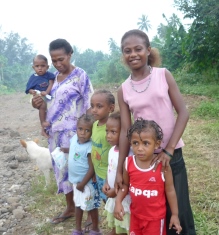

As we cross the District, I have been hearing from Rotarians about all the great services and project you have been undertaking, many of us doing so 'because it is the right thing to do'. And some saying we should be helping at home before going abroad.
This got me thinking and asking: why is it so easy to see poverty and great need, in the underdeveloped and developing communities of Africa and Asia, than it is here in Australia? I pondered further if we might be blind to our own poverty, since we see it all the time, that we are used to it, or we have made up justifications for it.
To participate in the rest of the Conversation, including Local Needs in Wiradjuri Country, How can we be effective? and further resources, follow the link below
To participate in the rest of the Conversation, including Local Needs in Wiradjuri Country, How can we be effective? and further resources, follow the link below
Local Needs in Wiradjuri country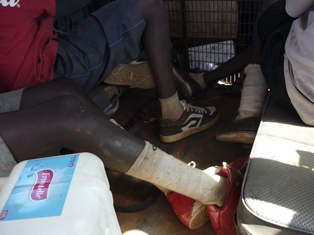
I have been humbled by one particular project being developed by Condobolin President, Steve Mansur in partnership with the Local Murrin Bridge Aboriginal Land Council. This project has at its heart the creation of conditions that build community resilience - through skills acquisition, education, on-the-job training, farming decision-making, income generation and modern sustainable farming and land management. Steve has also linked this resilience with the great need to prevent generally male youth suicide. The Project's goal is to re-develop the old vineyard site into a new sustainable agricultural enterprise that will generate long term employment for up to 30 local community members.

I have been humbled by one particular project being developed by Condobolin President, Steve Mansur in partnership with the Local Murrin Bridge Aboriginal Land Council. This project has at its heart the creation of conditions that build community resilience - through skills acquisition, education, on-the-job training, farming decision-making, income generation and modern sustainable farming and land management. Steve has also linked this resilience with the great need to prevent generally male youth suicide. The Project's goal is to re-develop the old vineyard site into a new sustainable agricultural enterprise that will generate long term employment for up to 30 local community members.
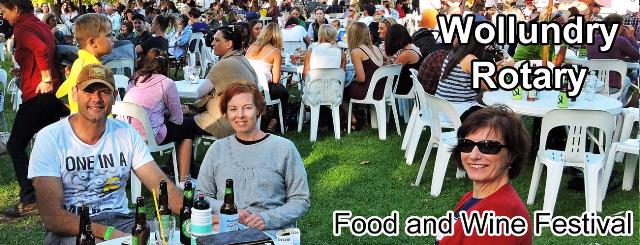 So many of the projects Rotarians undertake from the construction of BBQs (improved social amenity fosters community gathering and tolerance) through supporting community events and services (bringing people together to engage in positive social activity, or address a social/interpersonal need) to the construction of infrastructure to provide better facilities for communities. In all of this we are primarily improving "social" capital. And the return on that investment is measured in "social cohesion" in terms of "social resilience", and this is why Rotary has such a strong focus on peace and sustainability!
So many of the projects Rotarians undertake from the construction of BBQs (improved social amenity fosters community gathering and tolerance) through supporting community events and services (bringing people together to engage in positive social activity, or address a social/interpersonal need) to the construction of infrastructure to provide better facilities for communities. In all of this we are primarily improving "social" capital. And the return on that investment is measured in "social cohesion" in terms of "social resilience", and this is why Rotary has such a strong focus on peace and sustainability!But how effective are we?
This is of course the great question of our time - is our investment in social capital providing a positive return? While I cannot answer that globally, I suspect we can get a bit of a feel for it in our communities. It seems to me, over many years of working with Rotarians, that the most effective community development projects are those which are well planned, targeted, and adequately resourced. And in most cases they start off as high risk, 'it will never happen' propositions, developed by people with a vision. And you know what? Rotary can be a great space in which to foster that activity, a supportive and collegiate environment where mistakes can be buffered by input and knowledge from others.
This is of course the great question of our time - is our investment in social capital providing a positive return? While I cannot answer that globally, I suspect we can get a bit of a feel for it in our communities. It seems to me, over many years of working with Rotarians, that the most effective community development projects are those which are well planned, targeted, and adequately resourced. And in most cases they start off as high risk, 'it will never happen' propositions, developed by people with a vision. And you know what? Rotary can be a great space in which to foster that activity, a supportive and collegiate environment where mistakes can be buffered by input and knowledge from others.
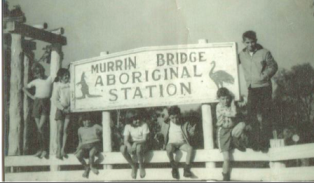 I think that the Murrin Bridge project is in this category - Steve and Land Council member Jamie have driven 1000s of km to seek support, but only a little has been forth coming - probably because it seems like a project that is 'too' ambitious. But this is the type of risk we need to take if we are going to make a difference as Rotarians! Remember, Polio Eradication was also very risky.
I think that the Murrin Bridge project is in this category - Steve and Land Council member Jamie have driven 1000s of km to seek support, but only a little has been forth coming - probably because it seems like a project that is 'too' ambitious. But this is the type of risk we need to take if we are going to make a difference as Rotarians! Remember, Polio Eradication was also very risky.Further Reading
You will recall Rotary's six areas of focus are the key elements for spending the Rotary Foundation funds. There is a great RI document Economic and Community Development - Project Strategies which provides excellent guidance for Rotarians in our quest to assist.
You will recall Rotary's six areas of focus are the key elements for spending the Rotary Foundation funds. There is a great RI document Economic and Community Development - Project Strategies which provides excellent guidance for Rotarians in our quest to assist.
Your thoughts???